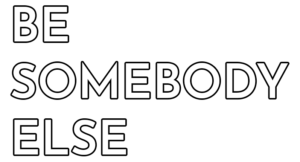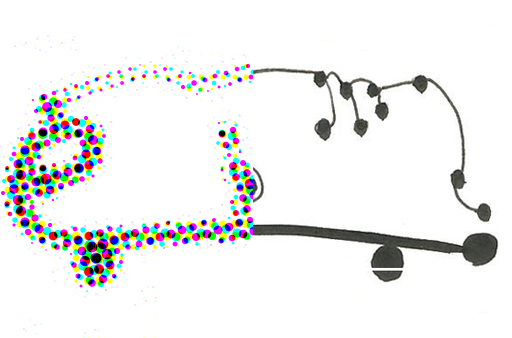by Tom Tomaszewski | Mar 27, 2024 | Be Somebody Else, HELPLESSNESS, MONOTONY

HELPLESSNESS / RAGE
Does your mind turn angrily to things you wish you could forget? It’s as if someone’s turned the heat up too high; a kind of friction with the past. These things seem to hang around waiting for an opportunity to get noticed. Maybe a small thing occurs and suddenly you’re back with them, all over again.
Resentful thoughts involve events in which you believe you were unable to represent yourself properly. For one reason or another the truth of the situation remains unrecognised. If you want to have fewer angry, resentful thoughts you need to feel recognised. Doing this can be like adjusting the thermostat of a heating system.
Everyday things say everything
Think about everyday things in your life and see if you can rate them in terms of how angry they make you feel now. Not when they happened, but right now. Hopefully, with them being everyday things, the majority will score a zero. But if they score twos or threes you may have a problem. All of those twos and threes can add up to a storm that feels more like a seven plus three.
Zero feels like a two
What can you do if a zero feels like a two? The ‘whole memory thing’ is liable to keep you thinking about the past, but you need to do something about the future, and you’d better get started.
Are your ‘everyday things’ actually things that are crucial to you but ones that the people around you ignore? Is there a theme underlying everything you feel angry about? Perhaps this theme rather than a lot of different events explains why you are feeling two or three, or maybe even more.
It’s very likely you are angry about something in general rather than the effects of specific things in isolation. Those ‘everyday things’ will involve a particular sense of injustice that you need to give meaning to. Maybe it’s something you can feel much more than describe. That’s okay, go with the feeling and some thoughts will arrive.
The justice emotion
Anger is the justice emotion. It should rise up when you experience what you regard as injustice, motivating you to stop or start something. If you experience a lot of injustice you’ll be seeing it in all kinds of things, small as well as large. The size of the ‘thing’ itself doesn’t matter: injustice is most likely to lurk in the small things people do that they think about least. At the same time they show themselves most.
If I find myself getting treated poorly because of something intrinsic to me (I get looked at in a certain way, for example, as I enter a building and am met with silence), and maybe I then see someone else being treated differently because of how they intrinsically are (they get smiled at and greeted respectfully) … my day is going to take a hit of anger. Moments of injustice like these will feel like links on a chain.
Search for openness
Look for people who are open to you as you are. Search for that openness in as many places as you can: you’ll feel it right away. Maybe you have stopped looking. You’re ability to SEEK has gone to sleep. Wake it up by finding the feeling of openness.
The feeling you get when you connect in that openness is the feeling of understanding, and understanding is the best signpost to justice. Trying to find justice on your own is the worst. Looking for it with other people, even if you find those other people in something like a book or a film, is better.
This is how you can start to turn the thermostat down.
by Tom Tomaszewski | Mar 6, 2024 | ALIENATION, DESOLATION, FRUSTRATION, HELPLESSNESS, HESITATION, INEXPERIENCE, MONOTONY
Insight and information can help you avoid repeating past ways of feeling, thinking and acting. You need to protect your capacity to think with that information, rather than to remember it. Your capacity to think freely is what will keep you safe and doing life the way you want.
Here are three things that you can do three times each day which will help prevent your body from becoming overloaded by negative intensity… worries, resentments and so on … the kinds of thing that will leave you stuck. causes a loss, sometimes a radical loss, of momentum. These three things promote positive intensity: the joy of being able to feel relaxed and thoughtful, the pleasure of being in harmony with your life, and the ability to start and stop things when you need to.
Box Breathing
Experiment with different amounts of time for the in-breath, pause and out-breath to see what suits you most for a situation. Box breathing is something you can always turn to discreetly
Don’t get taken for a ride
Stop being taken for a ride. Go and see films specifically to explore whether staying watching them or leaving is the best option. After you leave you need to be able to tell someone why you left. How long can you stay before you’re confident the film is not going to deliver what you need? You can experiment like this with any kind of experience, really. Always hold a place for your right to leave, work out how to do this in ways that feel right for you and others (ie storming out might not be the best option – quietly departing might be instead. Do you really want to make a point? What will the effect of that be on?
Instant sound bath
Buy a tuning fork or two and sound these close to your ear for an instant experience of being present in the world, connected to something outside of you that leaves you feel grounded in yourself.
by Tom Tomaszewski | Feb 29, 2024 | Be Somebody Else, MONOTONY

MONOTONY / SEEKING
Every event in your life, that is every moment of your life, will feel significant or insignificant. The ones that feel insignificant are the ones you are unlikely to notice, and vice versa. You have very little control over which events you regard as significant or insignificant: it’s an instinctual thing. Notice that we are thinking about feeling here, not knowing.
If you think about your life in terms of momentum you can change this relationship. New things can become significant. Events will seem more or less important than they used to. Life will take on different proportions*.
When you emerge from an event let it play out like a film for you, let it really move you like a film does, and see whether that event takes you to other ones in your past. don’t think about it, just get into it like you would a really emotional film.
This happened to me recently when I watched a film called All of Us Strangers. It took me to scenes from my childhood. I didn’t take myself to them, I just found myself there, in memories. In my memories I saw myself doing things in ways that I have often done throughout my life. Most of these I was aware of, but watching that film at that time allowed me to notice something new. Freud writes about this effect all of the time.
I noticed a way in which I tolerate things and could see how that way of doing life had been necessary, and often will be in the future (a lot of the time it’s a great asset), but that now I need to do some things differently. My life now demands it.
That felt super-intense. My momentum changed. Going with this my life may have a different trajectory, hopefully one best for me and those close to me.
Try it. Find a good film and let it move you. Don’t ask what the film means. That’s like saying you want it to explain itself … and its a film. Just let it do its thing and affect you. Go with the effect. Go with the affect. If you want to know why then that will most likely occur to you later
by Tom Tomaszewski | Feb 20, 2024 | MONOTONY

MONOTONY / SEEKING
I sometimes get a very strange feeling that makes me feel unmistakably alive. It’s un-monotony … a kind of super-enthusiasm where everything seems precious and vital. It has more feeling about it than seems real, actually. There are three films I can think of which make me feel like this, but only really the scenes filmed in parks. Cleo de 5 à 7 by Agnes Varda, What Time is it There?by Tsai Ming-liang, and Blow Up by Michelangelo Antonioni. It’s something to do with the odd sense of urbanity when you get inside a city park. Animals live there. People don’t (apart from the people looking after the park). You play there or do nothing productive you could stick a value on. Anywhere else in a city you’ll find people somehow working but every park is an oasis.
This makes me think of Daniel Stern’s work on vitality..
by Tom Tomaszewski | Jan 19, 2024 | MONOTONY

MONOTONY / SEEKING
Those things we call boundaries are thought-things we imagine like perimeter lines you might see drawn on a map. A certain kind of fence which somebody can inevitably walk through. They circumscribe you and to an extent will always limit you. Theyou who can be defined by boundaries can’t help being less than the you who might imagine doing so. Some things are beyond words, unless you develop a sense of poetry.
Often a sense of listlessness or monotony comes from remaining undefined as a person. You don’t know who you are, so how can you ever feel yourself? Maybe something’s happened that prevents you from connecting up as a ‘you’. Trauma does this: it keeps you away from yourself. Clinically I’d talk about this as dissociation.
by Tom Tomaszewski | Dec 21, 2023 | MONOTONY

MONOTONY / SEEKING
If things seem unending, unchanging, do something differently. This doesn’t have to be the polar opposite (stop instead of start, for instance). Ideally you are looking for a supplement. But failing that, all you are looking for is something legal, which isn’t abusive that makes you feel a little more powerful whether or not anyone else present agrees. If you’re in any doubt ask your three judges.
When you feel powerful some kind of a struggle has taken place. You have overcome something. Power is never possessed, it’s felt in moments and it always plays out like this.




